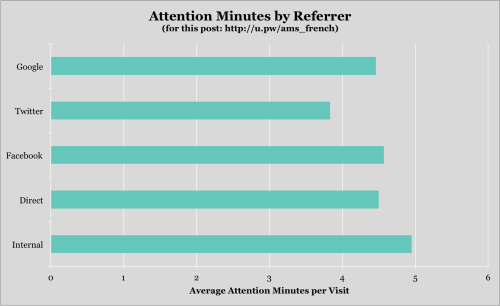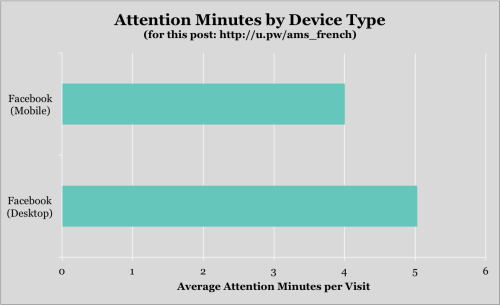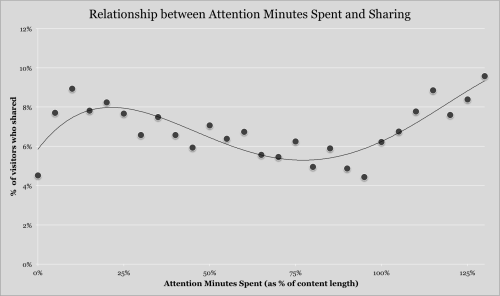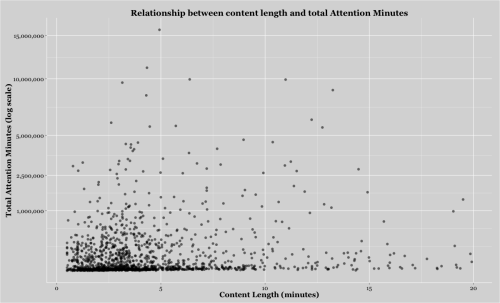3 Interesting Things Attention Minutes Have Already Taught Us
Our new Attention Minutes metric doesn’t just allow us to make sure we’re providing an excellent content experience for the Upworthy community — it also lets us compare notes with other organizations that are committed to real engagement over mere pageviews, like Chartbeat, YouTube, and Medium.
So we thought it’d be fun to examine some findings they’ve published to see if we’re finding the same things. Of the three things we looked into, we found one clear point of agreement (with a twist), one area of partial agreement, and one major difference.
Finding #1: Referrer matters — and so does device.
First, we looked at a Chartbeat finding that the average amount of attention per visit depends heavily on where the visitor came from. For our comparison, we looked at the data for a 10-minute French film about sexual violence we posted last week.

Like Chartbeat, we found that visitors who came to the video from another page on our site paid the most attention (nearly 5 minutes) while direct traffic and Facebook visitors paid somewhat less attention. However, unlike Chartbeat, we found that visitors arriving from Google paid more attention than those from Twitter (though both groups were quite small in this case, so it’s hard to draw meaningful conclusions).
The interesting bit came when we took our analysis one step further, breaking Facebook visits into those from facebook.com and those from m.facebook.com (the mobile version). We found that desktop visitors from Facebook spent more than 5 minutes watching on average. That’s more attention than visitors from any other source. Mobile Facebook visitors, on the other hand, averaged 4 minutes of attention.

Finding #2: People who stick around share more.
Next we looked at a tweet from Chartbeat that said they found “effectively no correlation between social shares and people actually reading.” That surprised us, but a longer version of what they found might be stated as, “Just because an article is shared a lot doesn’t mean that people are reading the whole thing.” And that makes more sense. Lots of people might share a breaking news article after reading only the first paragraph, for example.
But when we zoomed in and looked at individual behavior, rather than post-level data, a different story emerged. Reassuringly for content producers, the propensity to share is closely tied to how much attention each user pays.

As you can see, we found there’s a large group of people who do share early in the content. We can’t know their motivations, but perhaps they’ve already seen the content elsewhere? Perhaps they get the point quickly and just want to share it already? The folks who consume much, but not all, of the content are the least likely to share. But it’s those who make it to the end who are the most likely to share.
Finding #3: There’s no ideal length for content.
Finally, we looked at a blog post from Medium announcing that the optimal post length is 7 minutes. They found that although posts of any length can be big hits, on average, 7-minute posts garner the most attention.
However, we didn’t find the same thing.

Among our posts, a piece of content as short as 37 seconds has driven millions of attention minutes, as has content that’s 20+ minutes.
Perhaps this is because of differences between written content and visual content. Or maybe it’s due to the ways our respective audiences engage with our content. But we found no correlation at all between post length and the total amount of attention paid.
So what have we learned from Attention Minutes so far? Whether your content is short or long, whether your audience comes from Facebook or Google, whether lots of people have seen your content before or it’s brand new, quality is what counts.
Publish great stuff, and people will stick with it and share it with their friends. Hardly a revolutionary idea, but it’s good to confirm it with data.
– Daniel Mintz, Director of Business Intelligence

